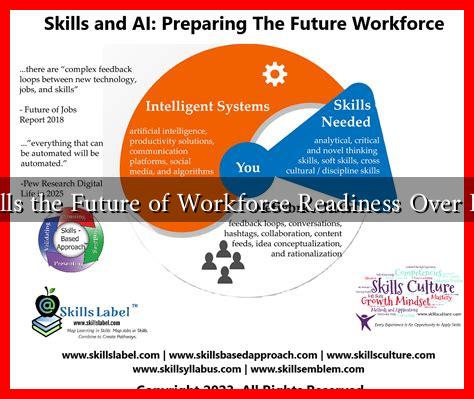-
Table of Contents
- Are Skills the Future of Workforce Readiness Over Degrees?
- The Changing Landscape of Employment
- Skills vs. Degrees: A New Paradigm
- Real-World Examples of Skills Over Degrees
- The Role of Education in Skills Development
- Statistics Supporting the Skills Movement
- Conclusion: Embracing a Skills-First Future
Are Skills the Future of Workforce Readiness Over Degrees?
In an era marked by rapid technological advancements and shifting economic landscapes, the debate surrounding the value of traditional degrees versus practical skills has gained significant traction. As employers increasingly prioritize workforce readiness, the question arises: are skills becoming more important than degrees in preparing individuals for the job market? This article explores the evolving nature of workforce readiness, the role of skills, and the implications for education and employment.
The Changing Landscape of Employment
The job market is undergoing a transformation, driven by factors such as automation, globalization, and the rise of the gig economy. According to a report by the World Economic Forum, over 85 million jobs may be displaced by a shift in labor between humans and machines by 2025. This shift necessitates a reevaluation of how we prepare individuals for the workforce.
Skills vs. Degrees: A New Paradigm
Traditionally, a college degree has been viewed as a ticket to employment. However, the increasing demand for specific skills has led to a paradigm shift. Employers are now looking for candidates who possess practical abilities that can be immediately applied in the workplace. Here are some key reasons why skills are becoming more critical than degrees:
- Employer Preferences: A survey by LinkedIn found that 92% of hiring managers prioritize skills over degrees when evaluating candidates.
- Rapid Technological Change: The fast pace of technological innovation means that skills can become outdated quickly. Continuous learning and adaptability are essential.
- Cost of Education: The rising cost of higher education has led many to seek alternative pathways, such as vocational training, online courses, and boot camps.
Real-World Examples of Skills Over Degrees
Several companies have embraced the shift towards skills-based hiring, demonstrating the effectiveness of this approach:
- Google: In 2019, Google announced that it would no longer require a college degree for many of its job openings, focusing instead on candidates’ skills and experience.
- IBM: IBM has implemented a “new collar” initiative, which emphasizes skills over degrees for roles in technology and cybersecurity, allowing individuals from diverse backgrounds to enter the tech field.
- Apple: Apple has also shifted its hiring practices, stating that it values skills and experience over formal education, particularly in technical roles.
The Role of Education in Skills Development
While the emphasis on skills is growing, education still plays a crucial role in workforce readiness. However, the focus is shifting from traditional degree programs to more flexible and practical learning opportunities. Here are some emerging trends in education:
- Online Learning Platforms: Websites like Coursera and Udacity offer courses that teach specific skills, allowing learners to gain knowledge at their own pace.
- Boot Camps: Coding boot camps and vocational training programs provide intensive, short-term training that equips individuals with in-demand skills.
- Micro-Credentials: Institutions are increasingly offering micro-credentials or digital badges that validate specific skills, making it easier for employers to assess candidates.
Statistics Supporting the Skills Movement
Several statistics highlight the growing importance of skills in the job market:
- According to a report by the McKinsey Global Institute, 87% of employers report difficulty in finding skilled workers.
- The World Economic Forum predicts that by 2025, 97 million new roles may emerge that are more adapted to the new division of labor between humans, machines, and algorithms.
- A study by the National Skills Coalition found that 53% of jobs in the U.S. require some level of postsecondary education, but only 43% of workers have the necessary skills.
Conclusion: Embracing a Skills-First Future
The future of workforce readiness is undoubtedly leaning towards a skills-first approach. As the job market continues to evolve, both employers and educational institutions must adapt to prioritize practical skills over traditional degrees. This shift not only benefits employers seeking qualified candidates but also empowers individuals to take control of their career paths through alternative learning opportunities.
In summary, while degrees will still hold value in certain fields, the emphasis on skills is reshaping the landscape of employment. As we move forward, fostering a culture of continuous learning and adaptability will be essential for both individuals and organizations to thrive in an increasingly competitive job market.
For more insights on workforce trends and skills development, visit World Economic Forum.


